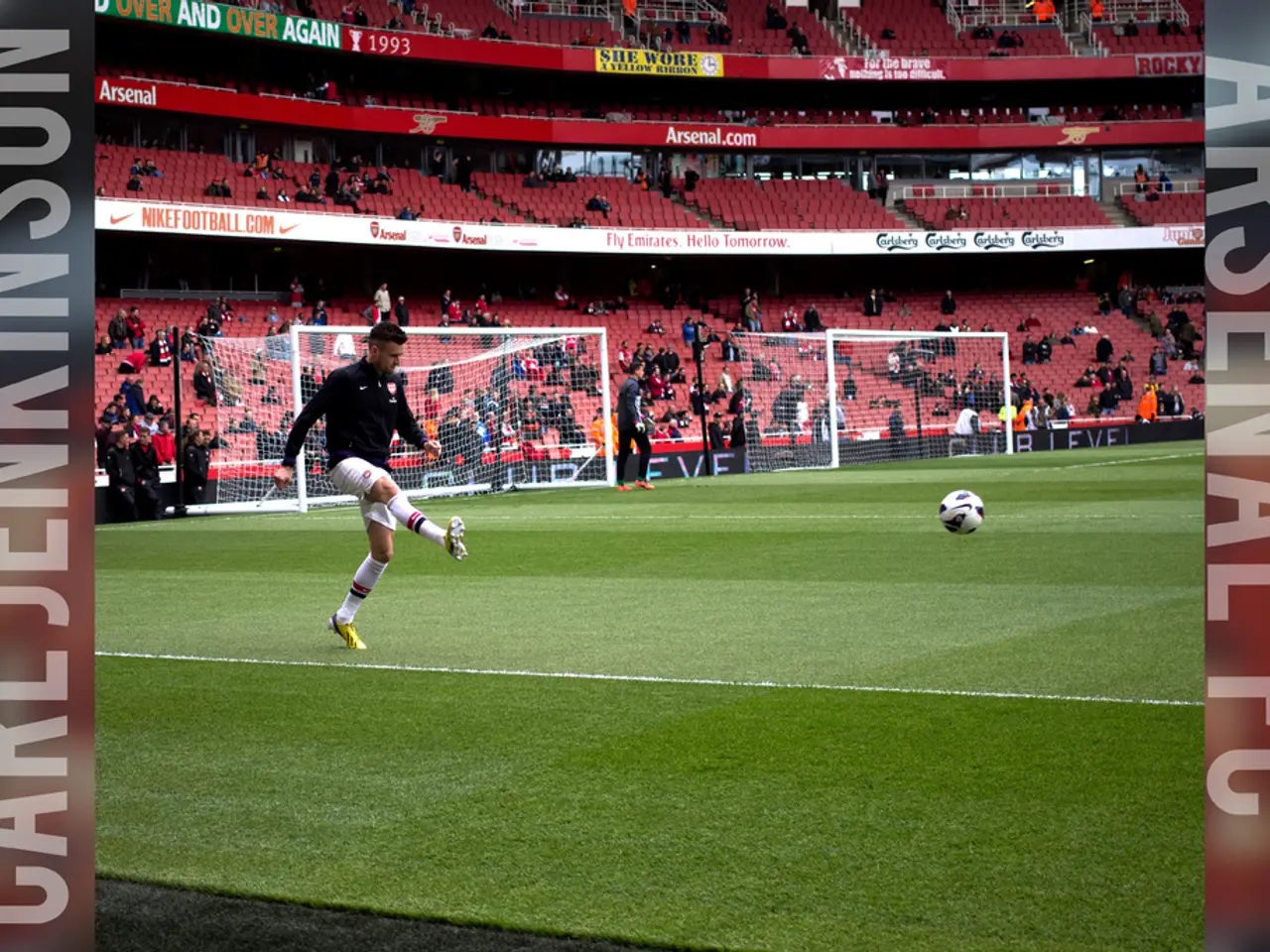Call for Reinstatement of Conscription in Military Bodies - Call for Reinstatement of Military Duty (Steinmeier's Proposal)
In the face of growing Russian threats and the need to expand its military, Germany is exploring new strategies for recruitment. One such strategy, currently under discussion, is the reintroduction of a form of conscription.
The German government, led by Chancellor Friedrich Merz, is contemplating the reintroduction of a conscription model, with 55% of Germans expressing support for such a move. Although conscription was suspended in 2011, it remains enshrined in the Basic Law and can be reintroduced with a simple majority.
Defence Minister Boris Pistorius has proposed a two-tier system for this potential reintroduction. The system would initially be voluntary, inspired by Sweden's model, with eligibility questionnaires sent to all 18-year-olds. Some would then be invited to join the Bundeswehr (the German armed forces). However, if recruitment targets are not met, a contingency for mandatory conscription would come into play.
Pistorius' proposal requires all males of a given birth year to register and attend initial screenings, while women would participate on a voluntary basis. Financial incentives and increased outreach are also part of the plan to boost enlistment. However, the bill excludes automatic triggers for conscription and mandates Bundestag approval before reintroducing compulsory service.
The proposal has met with mixed reactions. Some members within Pistorius’ Social Democratic Party (SPD) have expressed skepticism, while CDU/CSU members argue that the measures lack sufficient mechanisms and clear timelines to ensure rapid troop strength increase. They emphasize the urgency due to NATO commitments and security threats.
President Frank-Walter Steinmeier, however, has voiced his disapproval of reinstating mandatory conscription. He argues that young people today do not want to be forced into service and highlights the importance of voluntary commitment. Steinmeier's views align with a broader societal discomfort towards compulsory military service.
The proposed reintroduction of conscription is a significant political development in the context of Germany's defense policy. Steinmeier has cited the changing security situation in Europe, Russia's war in Ukraine, and the changed stance of the Trump administration in the USA on transatlantic relations as reasons for his advocacy.
However, the specific details of Pistorius' plan for the new form of conscription have not been disclosed. Steinmeier has suggested that a debate on conscription should ideally result in a positive outcome, allowing for a return to a different form of conscription if not enough volunteers come forward.
The interview did not provide a specific timeline for the implementation of conscription, but Steinmeier did not rule out the possibility of its implementation by 2027. The plan to reintroduce conscription was not discussed during Steinmeier's interview with ZDF's "Berlin direkt".
In summary, Germany is moving cautiously toward potentially reintroducing conscription but currently emphasizes voluntary service, with mandatory service as a fallback depending on recruitment success and security needs. The public sentiment is divided but leans toward cautious acceptance of a voluntary model with a backup draft option. However, there is also notable resistance, as seen in a surge of military personnel seeking to refuse service in combat units, which some interpret as a reaction against potential mandatory conscription.
- Given the ongoing discussions regarding the reintroduction of conscription in Germany, debates about the policy-and-legislation related to free movement of workers within EC countries could potentially be influenced, as the changes in military service may impact the general-news discourse on workers' freedom to provide services across borders.
- As the German government considers the reinstatement of mandatory conscription, the politics surrounding this decision could shape the broader society's understanding and acceptance of such policies and, in turn, influence future debates on similar legislation, reflecting the interconnected nature of policy-and-legislation and politics.







